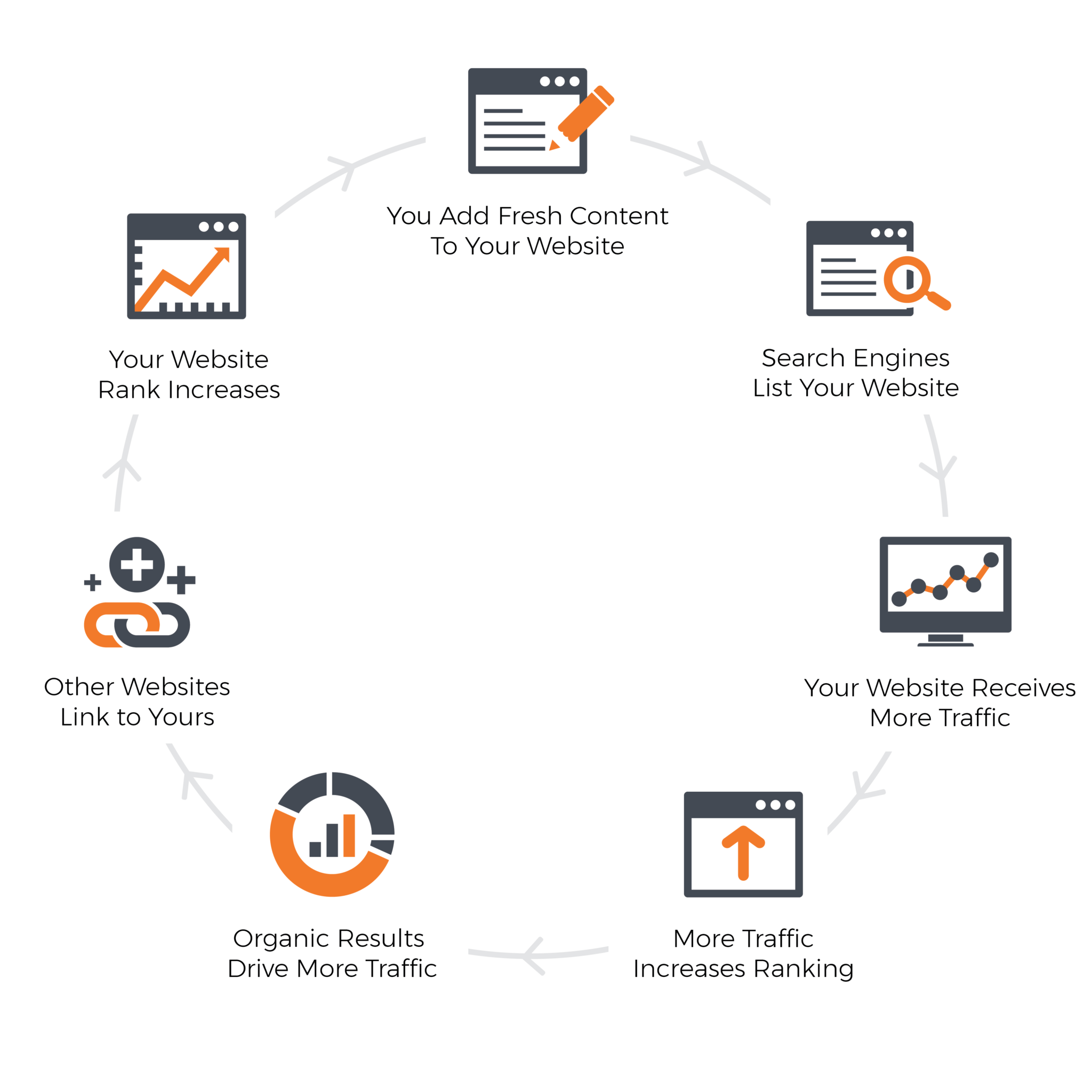You have a website- great! But are you getting the most out of it? If you’re not blogging, the answer is likely no! Here’s why.
Search Engines Love Blogs
An SEO Overview
All websites are not treated equally. Why? Google and other search engines use algorithms to rank the most trustworthy and relevant sites in their search results. What do they base these rankings on?
Keywords– This is how search engines know what your content is about.
Freshness – There are many factors that contribute to your website’s level of “freshness.” Some include: new pages, updated body content, traffic and engagement levels.
Link Profile – The more websites that link to your site’s content, the higher your “authority.” Adding relevant links to your own content is also beneficial, whether you are directing to internal or external webpages.
User Experience– Google prefers websites that follow usability best practices, especially mobile friendliness.
How Blogs Fit In
• More content on your site = more opportunity to add keywords
• Producing new and engaging content helps keep your website fresh
• Blog posts = an opportunity to include relevant links and for others to link to you
People Love Blogs
I don’t know everything. You don’t know everything. THAT’S OK- WE’RE NOT MEANT TO. Luckily, blogs present the opportunity to learn from other people’s experience and knowledge. That means readers gain necessary insight without the days/months/years of living and breathing a specific topic. Basically, you can gain expert knowledge without being an expert. #LifeHack2018
The Blog Effect
So what happens when you start writing a blog? I have decided to call it the Blog Effect. The Blog Effect is an interdependent relationship between your blog, website traffic and SEO. While it isn’t a perfect cycle and the order of “steps” may vary slightly, below is a visualization of this relationship:

The Breakdown
1) Increasing Traffic
When publishing new blog posts, you are adding fresh content to your website with industry-related keywords. Those keywords help search engines better understand the focus of your website, which allows them to effectively list you as a result for relevant searches. New content also gives your target audience (and even other users) a reason to come back to your website, which increases traffic.
2) Increasing Rank
Search engines will recognize your increased traffic and boost your overall rank. At some point, other websites may also recognize you as a creditable resource and link to your content; which increases your domain authority and therefore your rank. The higher your rank becomes, the more organic search results will drive users to your website. Now we’re back to increasing your site’s traffic!
As you can see, this easily becomes a never-ending cycle of increasing your website traffic and search engine ranking IF you continue to add relevant content.
Key Takeaways
Long story short- a blog gives you the opportunity to:
1. Engage with your target audience
2. Become a trusted resource
3. Increase your rank on search engines
4. Increase your site traffic
Have questions about starting a blog? Let us know! Otherwise, here are some other articles to help get you started:
Thought Leadership • Content Standards • Google Search Terms • Content Creation






